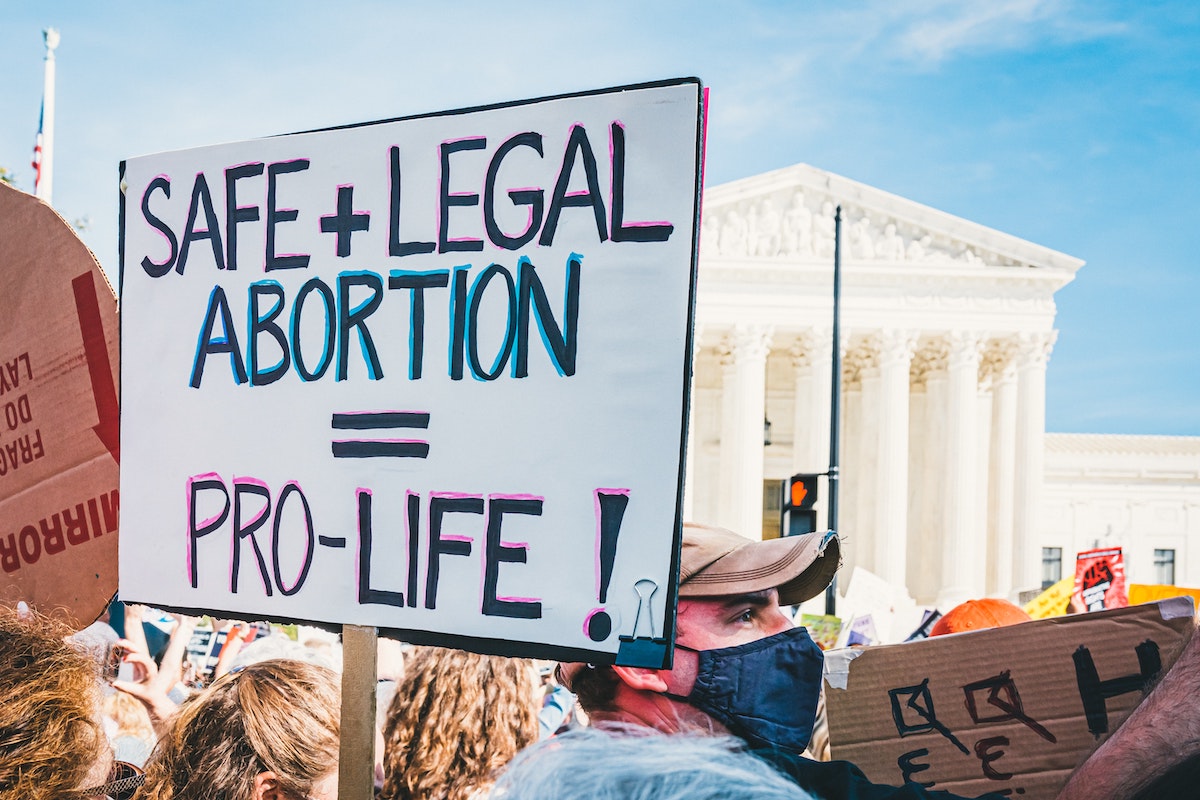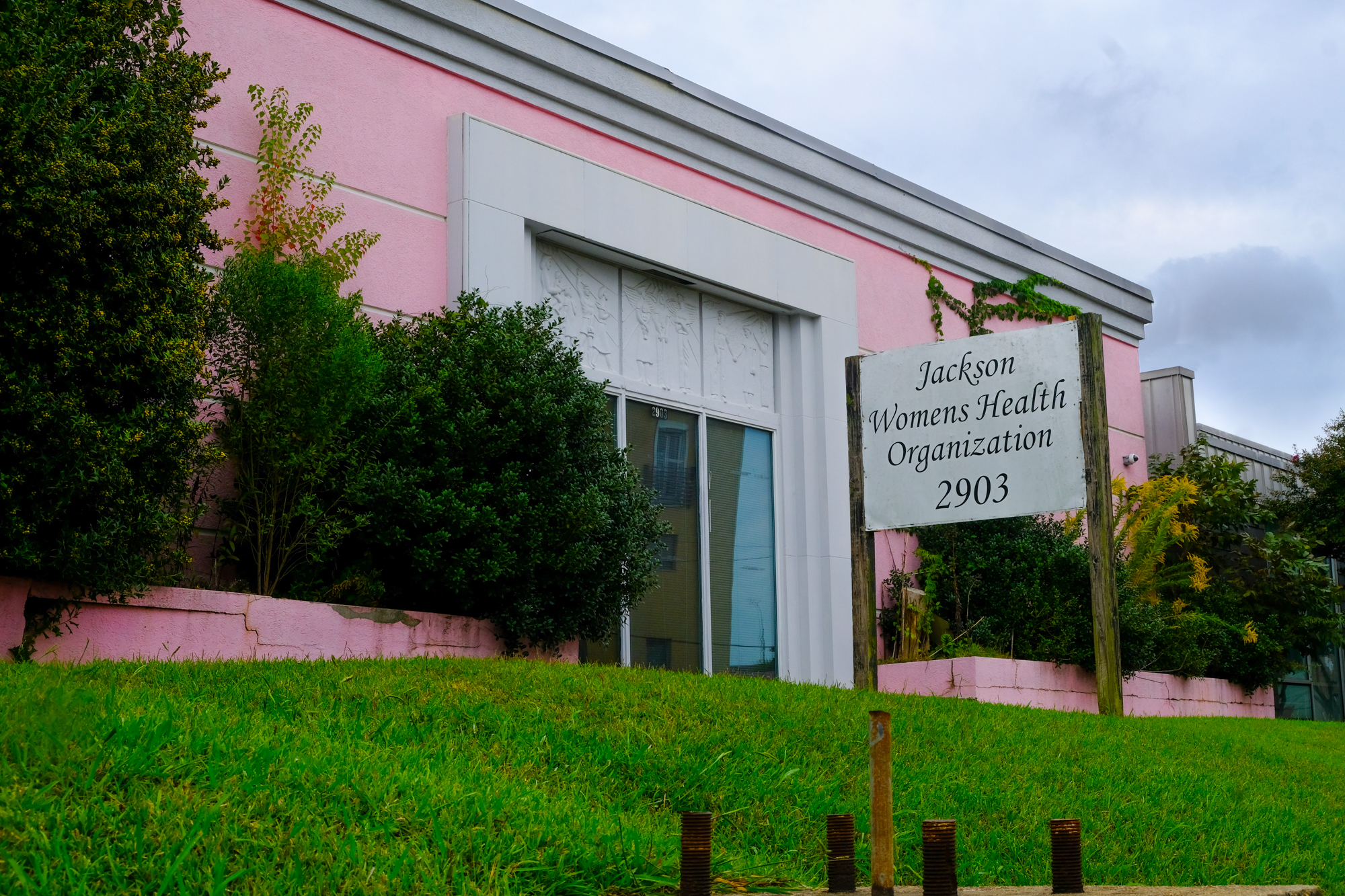As a young woman residing in the American South, I have little bodily freedom remaining since the U.S. Supreme Court overturned Roe v. Wade on June 24, 2022. Several states, including Alabama, Arkansas, Kentucky, Louisiana, Missouri, Ohio, Oklahoma, South Dakota, Texas, West Virginia and Wisconsin, now have statutes in place that allow no exception for abortion in cases of rape or incest. In this dismal reality, even our own violation does not qualify as justification for us to reassert autonomy over ourselves.
Cases of incest and rape present grim extremes, but they are not the only sphere the demand for abortion exists in. Women often find themselves unequipped to deal with the physical, emotional and mental toil of carrying a pregnancy to term. Other circumstances of pregnancies posing significant risk to the mother’s present and future also abound. In such situations, abortion is not the heinous villainy it is often portrayed to be; instead, abortion can be an act of mercy.
Amidst the endless whirlpool of anti-abortion arguments, it is often overlooked that none of us, as women, actually wants to get an abortion. If abortion was the desired outcome of accidental pregnancies, there would be little demand for contraception.
Nor is adoption a catch-all solution to the abortion issue. In fact, most women consider the process of adoption to be more painful than abortion. The Turnaway Study, a longitudinal observational study, revealed that women often bypass adoption as an option because they believe that there are already enough children in need of homes.
Moreover, lawmakers fail to recognize that adoption can be deeply traumatic, not only for the child but also for the woman giving up her baby. The study revealed that the knowledge of “having one’s child out in the world without knowing whether it was being taken care of or who was taking care of it was more guilt inducing than an abortion.”

The devastating impacts of the Supreme Court’s decision do not cease at its infringement upon our fundamental rights to our own bodies. There now exists fear that the reversal of Roe foreshadows a total loss of reproductive, and perhaps even sexual, freedom—a dystopian, but not unrealistic, possibility.
Because the implied constitutional right to privacy was the legal basis used to adjudicate Roe, the decision’s reversal jeopardizes other freedoms previously legally protected under the due process clause of the 14th Amendment. Justice Clarence Thomas wrote, “In future rulings, we should reconsider all of this Court’s substantive due process precedents, including Griswold, Lawrence, and Obergefell.” Those cases upheld the right of married couples to purchase contraception, the right for individuals to engage in private sexual acts and the right to same-sex marriage, respectively.
Although other conservative justices have expressed otherwise, Thomas’ statement shrouds these fundamental rights with uncertainty.
Disturbing Effects of Criminalizing Abortion
Additionally, in this new era of integrated biomedical technology, American citizens’ right to digital privacy is also at stake. Privacy experts are concerned that data collected from period tracking apps may be used to penalize, not only those actively seeking an abortion, but also those only considering it. As Rina Torchinsky of NPR recognized, “It isn’t uncommon for apps to cooperate with law enforcement during criminal investigations.”
Data from these apps can be subpoenaed to demonstrate that someone is considering an abortion—a particularly dangerous possibility in an America where lawmakers, such as those in Louisiana, are advancing bills “that would classify abortion as homicide.”
Because it is already very difficult to track what is going on with data shared with period trackers, these apps could lend an additional level of scrutiny to an individual’s private actions. For example, if a person crosses state lines to have an abortion procedure, and their menstrual and sexual data are accessible to the government, the information could be used to indict them.

Carrying a pregnancy against one’s will comes with harrowing emotional and mental health risks. But perhaps the greatest consequences of Roe’s reversal pertain to our physical health. Lacking in the justices’ lengthy explanation of how abortion rights are somehow constitutionally unsound is the acknowledgement that abortion is reproductive health care. People across a vast spectrum suffer without access to safe abortions.
Denied Treatment for Miscarriage
Texas’ heartbeat law (Senate Bill 8) criminalizes abortion when fetal cardiac activity can be detected. This gestational milestone occurs at around six weeks, mere days after a pregnancy test can accurately discern embryonic presence. Ever since the passing of SB 8, individuals have been denied treatment for miscarriage, ectopic pregnancies and severe pregnancy complications because of the treatment’s relationship with abortion.
Physicians typically offer patients medication to intensify miscarriage contractions, attempting to quicken the painful, bloody process. The treatments used for miscarriages are also employed in abortion procedures. However, after SB 8, the dispensing of such medications ceased in Texas because miscarriages, and elective abortions are clinically indistinguishable. The state’s providers are now afraid to provide necessary treatment in the case of an ectopic pregnancy when cardiac activity is detectable, thereby threatening the lives of pregnant people.
Similar worst-case scenarios are apparent in other nations banning abortion, where medical and surgical interventions are not offered for weeks or even months. Prolonging miscarriage compounds medical risks and exacerbates emotional and physical stress.
In situations of premature labor during the pre-viable period of the pregnancy, abortion procedures prevent infection and death. Even with anti-abortion laws that permit exceptions for saving the mother’s life, delays in communications and verifications of the medical situation lead moms to die waiting for the fetal heartbeat to stop.
Interrupting Medical Care, Contraception
The criminalization of abortion interrupts the continuity of medical care, forcing doctors to suspend their Hippocratic oath when they suspect voluntary causation for an abortion, even if it is actually spontaneous. The maternal and infant mortality rate will inevitably rise, and fresh blood will stain this country’s highest court.
Furthermore, the increased demand for contraception has already pushed pharmacy companies to limit purchase of Plan B contraceptive pills to three per customer. And the warped realities of a post-Roe America seem to forebode worse to come. As access to safe abortion grows more and more limited, people will turn to dangerous means of terminating their pregnancies.
Many Texan women have already made the treacherous trip across the southern border to obtain abortion pills from unregulated pharmacies. Because proper care must follow abortion-pill usage, we must now choose between surrendering our freedom or endangering our lives.
The future of the American fertility industry is also threatened. About 12.5% of U.S. couples struggle with infertility. In vitro fertilization provides a life-giving solution to these couples, as the sperm fertilizes the ovum in lab incubation. Typical procedures involve the creation of several viable embryos. After the embryo is implanted in the woman’s womb, the remaining embryos are often discarded.
In states that recognize life as beginning at conception, fertility clinics may face criminal changes if embryos are discarded without prior government authorization. Even if the freezer holding embryos goes kaput, employees may be held accountable.

While the coming days, weeks and months after Roe remain fraught with frightening, if not dystopian , prospects, we can still acknowledge that abortion is undoubtedly a complex moral issue. Choosing to keep one’s baby is no more a difficult decision than choosing to have an abortion.
But we must remember: This isn’t just about you or me. It’s about the 11-year-old Lisa, whose older boyfriend coerced her into sex and now finds herself in the midst of pregnancy for which her body is not prepared. It’s about the third-time pregnant mom, Anna, who finds herself having to choose between feeding her existing children or having a third one. It’s about the 17-year-old Claire, who had no access to proper sex education and now must choose between going to her dream school or raising a child alone. It’s about the 25-year-old Brenda whose fiancé abandoned her after learning that she was pregnant, leaving her unequipped to raise a child. It’s about 30-year-old Leah, who knows that she is not ready to be a good mother to her child.
Because at the end of the day, you, America, must decide. Which do you value more: the mere possibility of life or life as it endures? Will you have people simply exist, or will you allow them to make the choice to thrive? In this land of supposedly boundless freedom, what will you choose?
A version of this column was first published in The Northside Sun. This MFP Voices essay does not necessarily represent the views of the Mississippi Free Press, its staff or board members. To submit an essay for the MFP Voices section, send up to 1,200 words and factcheck information to azia@mississippifreepress.org. We welcome a wide variety of viewpoints.






